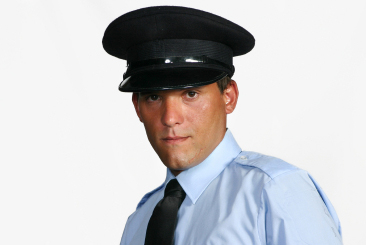|
|
| Listing Rookie Mistakes |
| By Joe Bouchard |
| Published: 10/05/2015 |
 The following is an installment in "The Bouchard 101", a series featuring "Ice Breaker's" designed to promote training awareness and capabilities in the corrections industry.
The following is an installment in "The Bouchard 101", a series featuring "Ice Breaker's" designed to promote training awareness and capabilities in the corrections industry.
This icebreaker is an excellent classroom exercise to precede a staff conduct module. It also works well as a refresher to veterans on how it was to be a neophyte. For this icebreaker, you might start with a story. I usually use one where my daughter committed the rookie mistake of hitting a deer during driver’s training. It goes like this. Talk about hard lessons learned early! I know of a young driver who was almost done with the first portion of her drivers’ education course. She passed a written test and was just a few miles shy of completing her supervised time behind the wheel. Little did she know that a deer, oblivious to the laws of physics and the weight of a mid-sized sedan, would try to dodge the vehicle she was driving. Try is the operative word. Put else wise, in the closing moments of her education, she got into a car/deer accident. She was shaken, but not hurt. All others in the car were also well. The deer, of course, was killed. It is difficult to react to the unpredictable elements of wildlife, other drivers, and driving conditions while learning how to operate a motor vehicle. Corrections neophytes learning to operate in a jail or prison have a similar difficulty. Just like those of the young driver, rookie mistakes in our profession can cast a long shadow and can be dangerous. With the many hazards in the strange world of corrections, it pays to be cautious. Seasoned corrections veterans are not exempted from making errors. Still, it behooves us to watch the progress of junior staff and to help them as we can. Part of that is recognizing their missteps. Informing rookies of their mistakes may help our new colleagues avoid future occurrences. Now with the story told, get the class to list classic neophyte blunders. Appoint a recorder or write the answers yourself. Ask the class to list as classic newbie blunder. Here are five classic examples: Over friendly –people can overdo it on being jovial in the corrections setting. Whether this behavior is because of upbringing or is a coping mechanism for stress, it is dangerous. Friendliness can be mistaken for a counter–corrections persona, forcing staff away when the rookie is most in need of support. In addition, this can be misconstrued by offenders. Over friendly is under cautious. Overbearing – wielding the new authority like the lock in a sock is threatening. Quite simply, it puts veteran staff and offenders on edge. There is a difference between being assertive and being an aggressively loose cannon. Overbearing is under cautious Having favorites – uniformity of action is like oil in corrections’ engine. When taken away, the engine seizes up. Favoritism builds resentment and revenge. It fosters distrust. In addition, favoritism gives the offender/recipient leverage for future manipulation schemes. Failure to ask questions – those too timid to inquire about proper procedure may put a foot in the legal or ethical quagmire. There many operating procedures and practices in place that may seem counter-intuitive to new corrections staff. Still, they are developed for a reason. Still, new staff fail to ask crucial questions because they do not wish to appear naive or inept. During training, questions are expected. Performing the wrong action, or even in action, may land the neophyte into deep trouble. Overt fear – it can be granted that corrections is not a perfect fit for many. And being afraid on the first day inside is natural. In moderation, a little nervous tension is safer than the mindless chest thumping bravado. However, uncontrollable and noticeable fear sends the wrong signals. Other staff may label the newbies as cowardly and create distance. Prisoners will notice of fear and some will try to capitalize on it. These and other road bumps make corrections one of the most challenging vocations there is. How do we ease transition for new staff? You can quiz the class on that, as well. Some answers may include the following:
Joe Bouchard is a Librarian employed with the Michigan Department of Corrections and a collaborator with The International Association of Correctional Training Personnel (IACTP). He is also the author of “IACTP’s Corrections Icebreakers: The Bouchard 101, 2014”. The installments in this series include his opinions. The agency for which he works is not in any way responsible for the content or accuracy of this material, and the views are those of the contributor and not necessarily those of the agency. While some material is influenced by other works, all of the icebreakers have been developed by Joe Bouchard. Visit the Joe Bouchard page Other articles by Bouchard: |
MARKETPLACE search vendors | advanced search

IN CASE YOU MISSED IT
|


Comments:
No comments have been posted for this article.
Login to let us know what you think